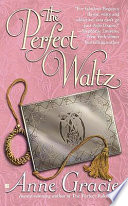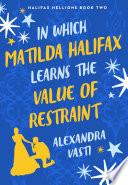I post these Men and Manners excerpts usually with little commentary, but this month grappled with continuing to do so without a discussion. First, some of these life lessons are misogynistic. Sometimes I comment on it, sometimes I don’t, but I want to state that I don’t think this book is representative of everyone in the Regency era so I don’t think we can extrapolate that everyone in the 19th Century was a misogynist. I share, despite the misogyny, because I think it gives us a sense of the type of maxims authors marketed for the masses, particularly the literate population, during the early 19th century. Second, I debated whether or not this month to exclude number 353, because it could be read to be antisemitic. I don’t have any interest in promoting any discriminatory philosophies or ideas, or normalizing them as a given for the era. But as I have with the misogynistic material, I want to share it, as opposed to censoring it, to spark a discussion or at least some thought. However, I am also open to changing my mind about sharing these maxims when they are offensive and do harm.
I had one reader in the annual survey ask for more contemporary context on posts, and while I do offer some on appropriate subjects, I often try to present original source material without commentary. I will explain that a little later on, but realized this was an appropriate time to weigh in.
I appreciate that sometimes I need to call out exactly what the purpose of my posts are and why I think readers should be interested. So forgive my editorial meanderings, but I think it’s important in this case to pull the curtain back.
There are some nuggets in some of these maxims that have truth today, and I think that is interesting. I think the differences are interesting, too. I think it’s important to talk about the realities of misogyny, racism, religious bias, and other forms of discrimination that existed in the early 19th century. That being said, I also think it is in the spirit of sharing these excerpts to say that some of the ideas are trash. For my part, I have had a different goal, however.
I started this type of post, including selecting one quote and putting it on a graphic ala Instagram, as an intentional satire about the type of pop-wisdom and pithy sayings that are shared frequently on social media. I was thinking about a Regency person being an influencer, someone like the author of Men and Manners, who offers canned wisdom and inspirational quotes and wanted readers to draw parallels. I think one of the most inspiring things about being a student of history is how it gets us thinking about history and comparing it to our lives. Learning about the Regency has taught me a lot about myself, and I want to share these discoveries with you but in a way that you can come to your own conclusions.
Readers often write to me questions about etiquette. I have also noted a lot of reviewers are critical of what they perceive are modern manners or beliefs woven into historical romance. I suspect that some of the readers/writers who send in questions related to etiquette are trying to avoid those reviewer criticisms. But for those dedicated Regency Readers, you know that my answers are typically nuanced and caveated because the Regency people were not a monolith. I share so much original 19th century text because I want people to read the real stuff–not my version of it–and draw their own conclusions. In some cases, I select text to show that accusations of anachronisms are unfounded. I developed a whole category of posts, Representing Regency, to address myths head on, particularly about the isms. But beyond myth busting, I have also wanted to tease out the very human impulses and instincts that run as many threads throughout the generations. I think that is an uplifting message and important feedback when the tendency may be to romanticize an era.
I also revel in sharing some of the differences– I purposefully pick unfamiliar recipes, and odd medical tips, and wax on about travel and destinations because I think context is important. That is to say that what makes us different from 19th century people is fashion. And, as Michelle shared in a comment recently, what underlies fashion hasn’t changed much — advertising. So it may be helpful to think of etiquette, or at least these life lessons, as advertising. I don’t mean that to be glib. I mean that to be inspiration – a spark to encourage thinking and writing and reading. What I wish most for my readers is curiosity and creativity, and I hope that earnest wish comes across.
So now you are in on my joke, in presenting these as Instagram-able quotes, where I am drawing parallels about influencer culture and advertising. When we see the isms in these maxims, the next step is for us to ask -what is the author selling. You now know what I am selling; an unvarnished, and slightly tongue in cheek, look at real etiquette/life lessons from the era with the hope that you, dear Regency Reader, take fresh eyes to the text and have that spark.
With that disclaimer, I present this month’s slice of Men and Manners:
This is the twenty-eighth post in our Men and Manners, Maxims for life by a Gentleman (Men and Manners ; Or, Concentrated Wisdom. 4th Ed. Much Enlarged, 1809) series. For the first twenty-seven posts:
Regency Culture and Society: Men and Manners
Regency Culture and Society: Men and Manners (2)
Regency Culture and Society: Men and Manners (3)
Regency Culture and Society: Men and Manners (4)
Regency Culture and Society: Men and Manners (5)
Regency Culture and Society: Men and Manners (6)
Regency Culture and Society: Men and Manners (7)
Regency Culture and Society: Men and Manners (8)
Regency Culture and Society: Men and Manners (9)
Regency Culture and Society: Men and Manners (10)
Regency Culture and Society: Men and Manners (11)
Regency Culture and Society: Men and Manners (12)
Regency Culture and Society: Men and Manners (13)
Regency Culture and Society: Men and Manners (14)
Regency Culture and Society: Men and Manners (15)
Regency Culture and Society: Men and Manners (16)
Regency Culture and Society: Men and Manners (17)
Regency Culture and Society: Men and Manners (18)
Regency Culture and Society: Men and Manners (19)
Regency Culture and Society: Men and Manners (20)
Regency Culture and Society: Men and Manners (21)
Regency Culture and Society: Men and Manners (22)
Regency Culture and Society: Men and Manners (23)
Regency Culture and Society: Men and Manners (24)
Regency Culture and Society: Men and Manners (25)











This is a wonderful post and not too glib at all! One of the values of reading historical fiction is understanding where we have been and appreciating any progresses (or not) we have made. These etiquette posts are extremely helpful in that regard. Thanks again!
Thank you for the thoughtful comments! I agree that there is real value in looking to the past as measurement for the current.